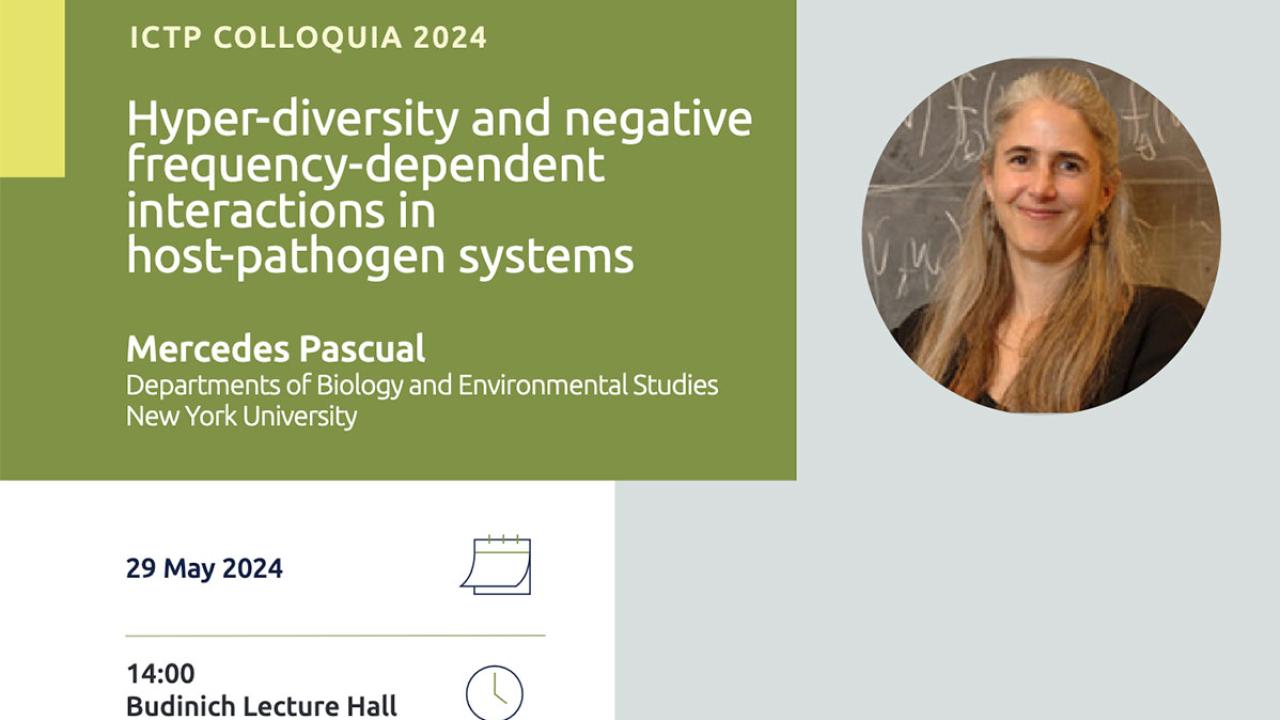
ICTP is pleased to announce a colloquium by theoretical ecologist Mercedes Pascual titled "Hyper-diversity and negative frequency-dependent interactions in host-pathogen systems". The talk will take place on Wednesday 29 May in ICTP's Budinich Lecture Hall from 14:00 to 16:00 and is open to all. It will also be livestreamed at www.ictp.it/livestream.
Mercedes Pascual is a Professor of Biology and Environmental Studies at New York University, and an external faculty of the Santa Fe Institute, with research interests in the population dynamics of infectious diseases, their response to changing environments and their interplay with pathogen diversity.
Abstract of talk:
How important are specific ecological interactions to the assembly of a diverse community of species? Can coexistence reflect instead neutral assembly, simply resulting from stochastic birth-death processes? What signatures in macroscopic diversity patterns can help us distinguish among these two explanations? These long-standing questions from Ecology and its interplay with Evolution, can be similarly asked at a different level of biological organization for strain diversity within a pathogen population. I do so here for the hyper-diverse malaria parasite Plasmodium falciparum in high-transmission regions. Strains compete for hosts as these acquire specific immune memory, which creates an advantage of the rare and a disadvantage of the common, resulting in negative frequency-dependent selection (NFDS). I show that networks describing patterns of limiting similarity can help us identify the importance of this non-neutral process to coexistence. With a more analytically tractable PDE model, I further discuss implications of the positive feedback between diversity and transmission/competition intensity for resilience of the pathogen population. I end with brief mention of other microbial populations of large diversity under NFDS, and of other ecological systems to which similar ideas may apply.
















